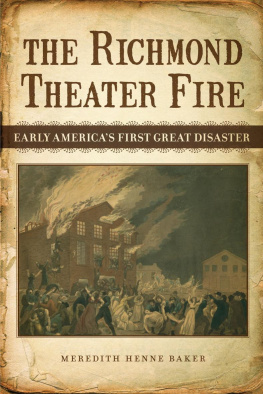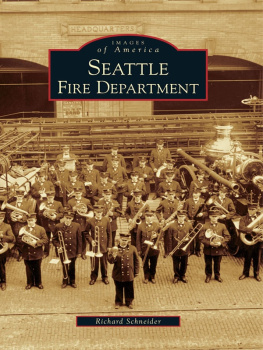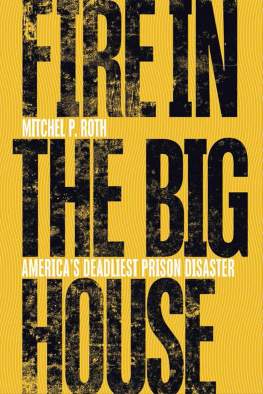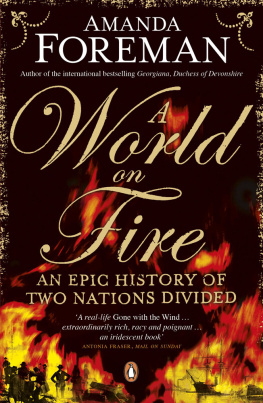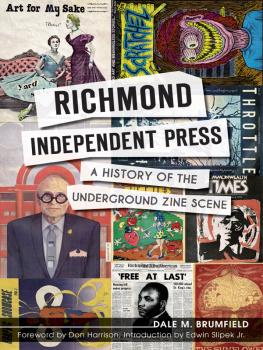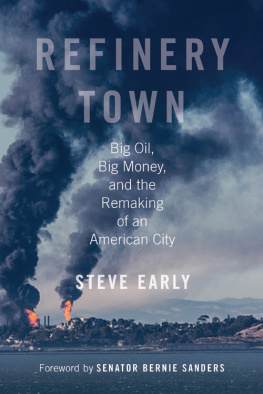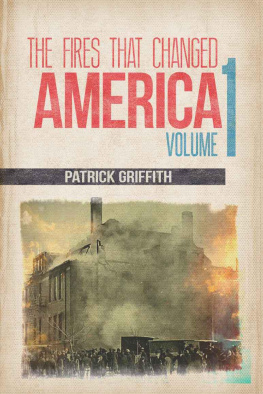Winner of the
Jules and Frances Landry Award
For 2012
THE R ICHMOND
T HEATER F IRE
EARLY AMERICAS FIRST GREAT DISASTER
MEREDITH HENNE BAKER
Published by Louisiana State University Press
Copyright 2012 by Louisiana State University Press
All rights reserved
Manufactured in the United States of America
FIRST PRINTING
DESIGNER: Mandy McDonald Scallan
TYPEFACE: Whitman
PRINTER: McNaughton & Gunn, Inc.
BINDER: Acme Bookbinding, Inc.
Library of Congress Cataloging-in-Publication Data
Baker, Meredith Henne, 1979
The Richmond Theater fire : early Americas first great disaster / Meredith Henne Baker.
p. cm.
Includes bibliographical references and index.
ISBN 978-0-8071-4374-2 (cloth : alk. paper) ISBN 978-0-8071-4375-9 (pdf) ISBN 978-0-8071-4376-6 (epub) ISBN 978-0-8071-4377-3 (mobi) 1. Richmond Theater (Richmond, Va.)Fire, 1811. 2. FiresVirginiaRichmond. 3. TheatersAccidentsVirginiaRichmond. 4. Richmond (Va.)History19th century. 5. Richmond (Va.)Biography.
I. Title.
F234.R557B35 2012
975.545103dc23
2011033385
The paper in this book meets the guidelines for permanence and durability of the Committee on Production Guidelines for Book Longevity of the Council on Library Resources.

Hear the loud alarum bells
Brazen bells!
What a tale of terror, now, their turbulency tells!
In the startled ear of night
How they scream out their affright!
Too much horrified to speak,
They can only shriek, shriek,
Out of tune,
In a clamorous appealing to the mercy of the fire,
In a mad expostulation with the deaf and frantic fire,
Leaping higher, higher, higher,
With a desperate desire,
And a resolute endeavor,
Nownow to sit or never,
By the side of the pale-faced moon.
Oh, the bells, bells, bells!
What a tale their terror tells
Of Despair!
How they clang, and clash, and roar!
What a horror they outpour
On the bosom of the palpitating air!
Yet the ear it fully knows,
By the twanging,
And the clanging,
How the danger ebbs and flows:
Yet the ear distinctly tells,
In the jangling,
And the wrangling,
How the danger sinks and swells,
By the sinking or the swelling in the anger of the bells
Of the bells
Of the bells, bells, bells, bells,
Bells, bells, bells
In the clamor and the clangor of the bells!
THE BELLS, EDGAR ALLAN POE, 1849
CONTENTS
PREFACE
The Richmond Theater was among the largest in America, and its destruction by fire forms one of the striking events of early American history.
FIRST THEATER FIRE, Washington Post, JANUARY 3, 1904
O n the twelfth block of East Broad Street in Richmond, Virginia, where eastbound traffic noses down the steep hill toward the rail station, Monumental Church sits squarely on a scrubby green lawn like a domed white sepulcher, an isolated Greek ruin partially obscured by a temporary plywood walkway protecting pedestrians from the ambitious construction work on surrounding blocks. One October, I found parking a few streets away at the hospital garage and walked east in the sticky early autumn heat past John Marshalls family home, past the Egyptian building, until I reached Monumental. Jackhammers, hardhats, and the detritus of construction ringed Monumental Church as Virginia Commonwealth University augmented its campus up to the very property line of the old landmark. In the churchs front lawn lay a few downed signposts. Next to a dirty, face-up No Parking sign lay the state-issued historical marker for Monumental Church, on its side, black script on a white background. The marker gave a few clues to the astounding story of a tragedy that forever transformed the capital of the South and led to the construction of this historic monument:
Virginia Governor George W. Smith died here in 1811. Several survivors owed their lives to the bravery of Gilbert Hunt, a slave blacksmith. A committee chaired by Supreme Court Chief Justice John Marshall raised funds for the churchs construction. Designed by Robert Mills and completed in 1814, the octagonal building served as an Episcopal church until 1965.
A year before, when I crashed a private tour for well-heeled Southern historical preservationists, we descended through a narrow, dark stairway to the arched walls and dirt floors of Monumental Churchs subterranean vault.
The crypt rises in the center of the basement tomb, an enormous mound on a prehistoric scale. Using ground-penetrating radar, the Historic Richmond Foundation, owners of the site, had detected the locations of two oversized wooden coffins inside. The radar could not penetrate the coffins, but the foundation knew what was inside. Slave, free, schoolgirl, gentry, carpenter, governor, Jew, Catholic, father, actress, prisoner of war: the remains of nearly a hundred bodies lay in a cluttered heap, relics of those who attended the Richmond Theater one festive holiday night nearly two hundred years ago. Their lives ended suddenly, an eternal transaction taking mere minutes, and they fell, as a contemporary wrote, in one promiscuous ruin.
The Richmond Theater fire captured the public imagination in 1811 and held it for a hundred years before being gradually forgotten, no more than a footnote and a crumbling white memorial that once earned the wonder of the nation. The tragedy spawned a display of national mourning the scale of which had not been seen since the death of George Washington. Even in a day when destructive fires were frequent, this fatal conflagration horrified Americans like no other event in her young history. As Richmond questioned why the destruction had been visited upon it, the fire became a catalyst for religious transformation. This 1811 disaster led citizens to create change in a shattered city and to bring life out the ruins. How this prominent early republic city was transformed as a result of an unprecedented disaster is the subject of this book.
THE RICHMOND THEATER FIRE
PROLOGUE
I n 1811, the day after Christmas, Caroline Homassel sat bejeweled and cheerless in box eight of the Richmond Theater, overlooking the stage where The Bleeding Nun was unfolding. A night of amusement at the theater was another of her friends untiring efforts to cheer downcast Caroline. Her devoted companions, local belles Maria Mayo and Sally Conyers, sat nearby, as did another friend, Lucy Madisonniece of sitting president James Madison. Box eight was capacious, probably seating over a dozen theatergoers, all trying to make my time pass pleasantly, as she recalled, providing distractions for her crushed heart. Although her depression had lasted over a year, Caroline was not a characteristically despondent girl. That is, she had not been until Alfred Madisons sudden death the year before.
Caroline had been born in Philadelphia in 1795. She took after her slight mother, inheriting her rich brown complexion, flushed rosy cheeks, chestnut curls, and hazel eyes. When a yellow fever outbreak in 1798 claimed two siblings and her mother, Carolines dejected father put her in the care of her uncle John Richard and his wife, Mary Dixon Richard. He then fled to France and died eight years later. Young Caroline alternately referred to the Richards in her memoirs as her parents or as her aunt and uncle. For business reasons, the little family moved to Virginias capital city, Richmond, which in 1801 was then like a village, with only one church on Church Hill and one Baptist meeting house, as they discovered. Winsome and musical, Caroline brightened the lives of her adoptive parents, co-owners of the Gallego & Richard flour mills, and as a young lady made her mark as a vivacious favorite in the elite circles of Richmond society.

